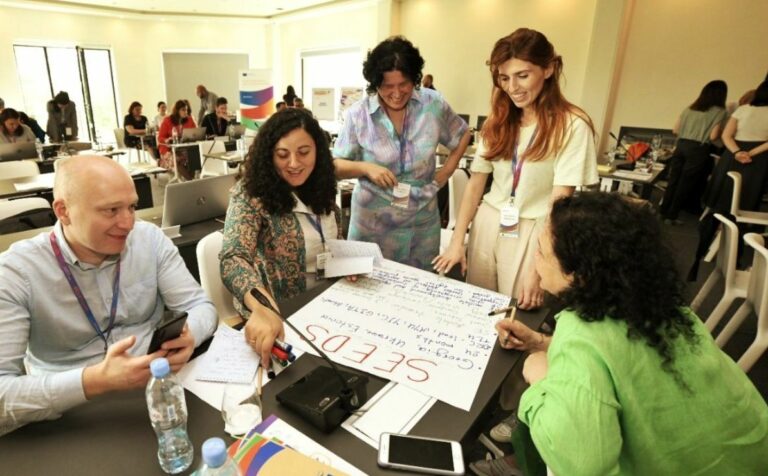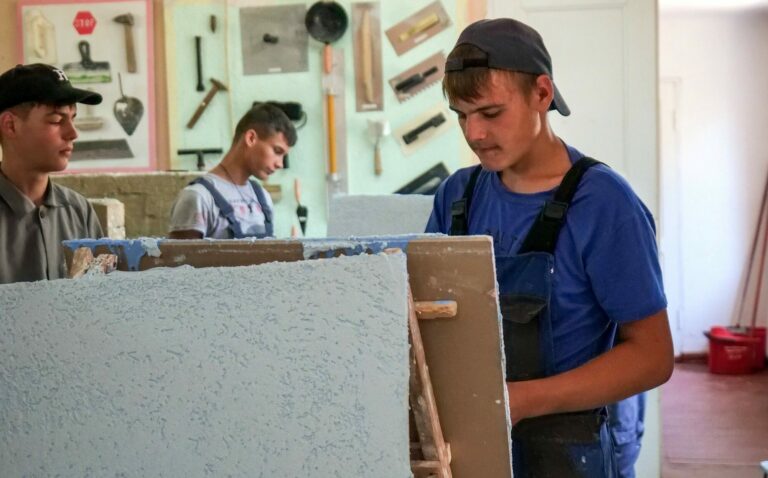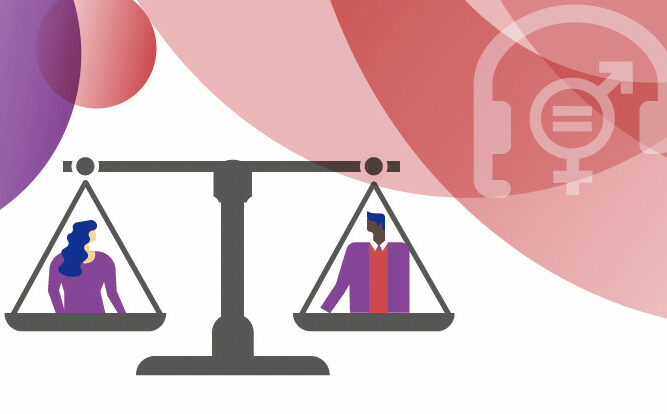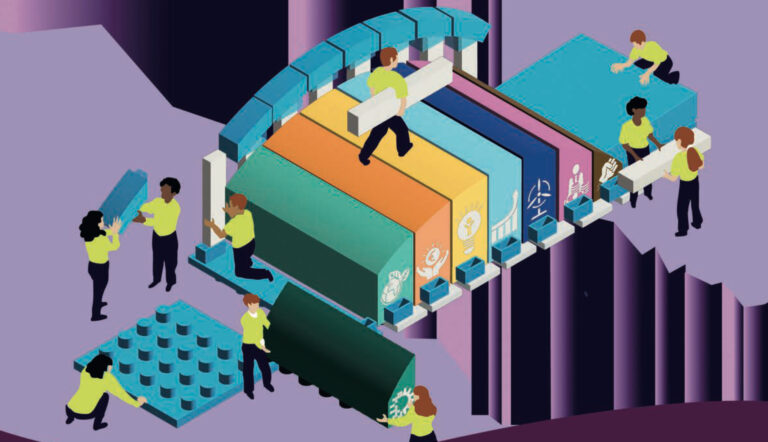
Delivering on SDG indicator 5c.1 in the Republic of Moldova: country report
The Agenda 2030 for sustainable development which is dedicated not to leave anyone behind
under SDG 5: achieve gender equality and empower all women and girls; directly evaluates
countries transition to gender responsive budgeting with the indicator 5.c.1. „Proportion of
countries with systems to track and make public allocations for gender equality”, which sets
an entry point for a globally unified methodology on GRB.
The Republic of Moldova has committed to the goals and has submitted in 2020 a Voluntary
National Review on implementation of the 2030 Agenda detailing progress achieved so far in
advancing the Agenda for Sustainable Development, as well as to assess the impact of the actions taken. This report focuses on one of the indicators within the indicator 5, SDG indicator 5c1. The production of this report was a complex participatory exercise of data gathering and research, following with society and dedicated partners in the government and donor community. It aims to detect successes achieved and key challenges that lay ahead for more transparent and accountable budgeting for women empowerement and enhancment of gender equality.
Gender Budget Watchdog Network in Albania, Bosnia and Herzegovina, Kosovo, North Macedonia, Montenegro, Serbia, Republic of Moldova. A.O. Keystone Moldova, May 2020
Download
MOST READ
RELATED

EU4Culture: Practical online course on successful grant proposal writing

EU4Youth Newsletter: Welcome to the EU4Youth Stakeholder Hub!

EU4Youth develops Youth Wiki reports on Youth Employment and Employability

EU4Gender Equality Reform Helpdesk’s support (2021-2024) for Moldova

SME Policy Index: Eastern Partner Countries 2024 – Building Resilience in Challenging Times
More campaign pages:
Interested in the latest news and opportunities?
This website is managed by the EU-funded Regional Communication Programme for the Eastern Neighbourhood ('EU NEIGHBOURS east’), which complements and supports the communication of the Delegations of the European Union in the Eastern partner countries, and works under the guidance of the European Commission’s Directorate-General for Neighbourhood Policy and Enlargement Negotiations, and the European External Action Service. EU NEIGHBOURS east is implemented by a GOPA PACE-led consortium. It is part of the larger Neighbourhood Communication Programme (2020-2024) for the EU's Eastern and Southern Neighbourhood, which also includes 'EU NEIGHBOURS south’ project that runs the EU Neighbours portal.

The information on this site is subject to a Disclaimer and Protection of personal data. © European Union,







